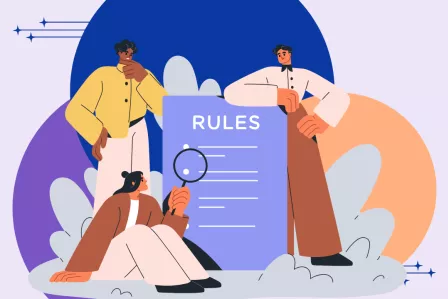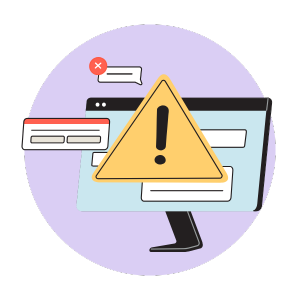
Laws sometimes require checking people's age to tell children apart from adults.
 | One main reason for age assurance is to protect children from harmful products or services. For example, most countries stop children from gambling because it can hurt their health, well-being, and money. Similarly, countries in Europe don't allow children to buy alcohol, whether in stores or online. Age assurance can help sellers to know if someone is old enough to buy alcohol legally. |
 | Children also can't do certain things legally, like getting a phone contract, without a parent's permission. This is known as contract law and protects them from business risks. They need an adult to approve any legal agreements. |
 | In the Europe Union, the General Data Protection Regulation (GDPR) sets rules about when young people can agree to share their data online. The age limit is between 13 and 16, depending on each country's rules. Laws also require digital services to protect children's privacy and safety. To do this, services need to know which users are children, so they check users' ages. For example, the Digital Services Act (DSA) in Europe makes online spaces safer for everyone. The GDPR also requires digital services to protect children's data carefully. |
Further information and resources
Download the Age assurance toolkit here.
Age assurance and online child safety

Laws sometimes require checking people's age to tell children apart from adults.
 | One main reason for age assurance is to protect children from harmful products or services. For example, most countries stop children from gambling because it can hurt their health, well-being, and money. Similarly, countries in Europe don't allow children to buy alcohol, whether in stores or online. Age assurance can help sellers to know if someone is old enough to buy alcohol legally. |
 | Children also can't do certain things legally, like getting a phone contract, without a parent's permission. This is known as contract law and protects them from business risks. They need an adult to approve any legal agreements. |
 | In the Europe Union, the General Data Protection Regulation (GDPR) sets rules about when young people can agree to share their data online. The age limit is between 13 and 16, depending on each country's rules. Laws also require digital services to protect children's privacy and safety. To do this, services need to know which users are children, so they check users' ages. For example, the Digital Services Act (DSA) in Europe makes online spaces safer for everyone. The GDPR also requires digital services to protect children's data carefully. |
Further information and resources
Download the Age assurance toolkit here.
Age assurance and online child safety
- Related content
- age assurance age verification





